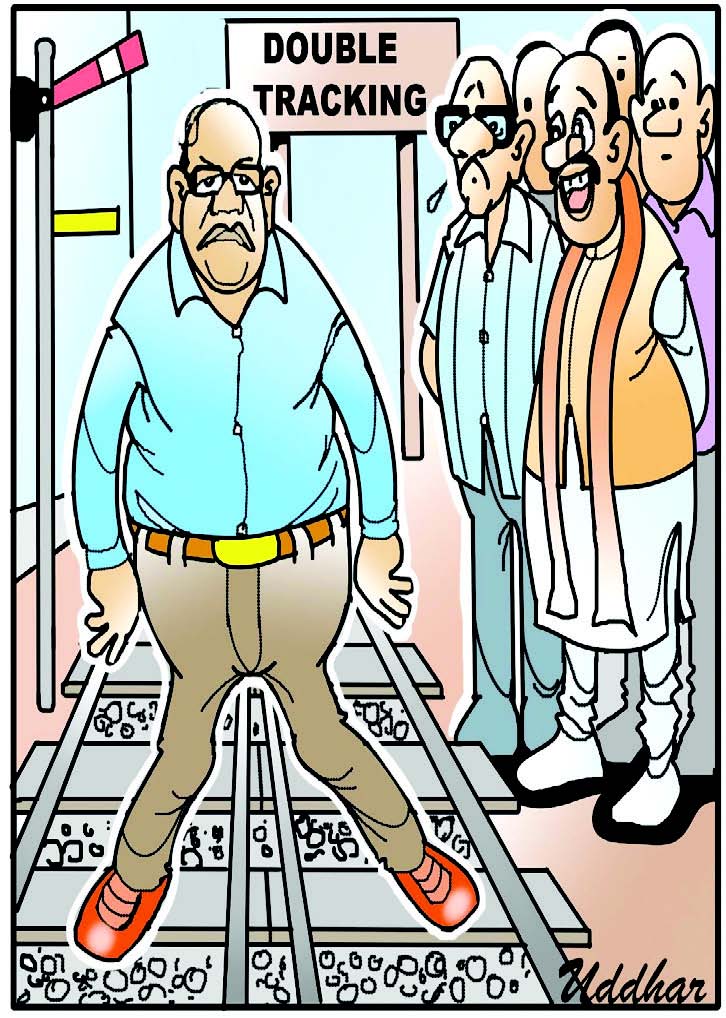
When the people of Goa, its activists, NGOs and right-thinking people have played a huge public service role in being the watchdogs of our societies and our political system, how is it that the very politicians who Goans have held responsible for the breakdown of governance on every which way, continue to keep winning?
Do you want to be just a vote with a number or do you want to be an empowered citizen?
In a game of numbers, many politicians only need to break the fixed deposit of their vote bank every five years. In close to 50 per cent of the Assembly seats, the vote banks work. And these vote banks are not always migrant or slum vote banks. Politicians – and we all know some of them who fit this bill – contest, resign and again contest from different parties, more often than they change their clothes perhaps and it makes no difference to their voting numbers. Why does this happen? The answer lies in this:
It’s a master-slave equation at work
The politician who should be the servant is actually the master. The voter who should be the master is the slave. And the master takes care of every basic need, not the government which is in power. From power to water to school admissions to marriages and higher education and even funerals and cremations, the master’s hand blesses the voter, from cradle to the grave.
Before voting, scooters and cycles arrive, small homes suddenly have fancy TVs, washing machines and refrigerators, the unemployed get government job letters even if there are absolutely no vacancies and places to sit in the department offices.
And of course ration cards, Aadhaar cards and any other documents needed to avail of government schemes and benefits to reach them at their doorsteps without any trouble.
But it doesn’t end there. The fixed deposit is built up due to mini fixed deposits. This means that each such politician works with local leaders like sarpanchas, councillors and others, each of whom controls different numbers of votes which all add up to the main fixed deposit. So, each of these local leaders, derive their power and importance, directly from one politician. Do you think that these local leaders or even the people who are enslaved will ever want the situation to change? This is all about their comfortable lives and following a system that has worked for them and their families across generations.
Will a vote bank voter care if Goa suffers coal pollution, or there is no self-employment or if government schemes reach the poor or the economy is suffering?
Goans want their government to plan and resolve issues that concern both their day-to-day lives as well as issues that concern Goa. They want money in their pockets, an opportunity to earn, control over their land, a good business environment and so on. But if a person is just a number in the vote bank, will Goa’s concerns bother him or her? They either get jobs for one member of their family, with all their bills paid, their children’s education taken care of and all health expenses covered. Will, they then even care of their MLA has taken a stand and worked towards the larger issues of Goa’s concern.
And when that is the case, the party symbol is just incidental. They can even win as Independents.
Why do parties hunt for such MLAs? So that the constituency can be “outsourced”
For political parties, these MLAs work because they are like racehorses who will surely win. Just like candidates need numbers to win, so do parties to form a government. So these outsourced racehorses actually function like independent assets, who also get ready cabinet berths.
How does this affect governance?
It affects governance at two levels. Firstly at the state level, these MLAs when they become ministers use their departments solely for the purpose of their own constituency and not their State. A visit to the GMC will give you a ready example of this process at work. But this is not the only example but perhaps one of the more obvious ones. Secondly, they can get away with absolutely no development in the constituency. When they know by just taking of their vote banks as a fixed deposit, they get these sure votes at the end of the term, there is very little they need to do as long as the captive voters are kept happy.
How can this chain be broken?
This can be done only when there is a fresh new way of governance where the State has a direct relationship with the people in terms of services and delivery of services. At the same time, a system that evaluates the performances of MLAs in their constituencies and ministers for their department work in the entire State, and gives tickets based on genuine performance for the development of their areas and their State, will only work.
As long as Goa continues to elect leaders based on fixed vote banks, Goans who exist outside of these vote banks, even in the same constituencies, get deprived of good governance. Secondly when people want real change, then those who work with their vote fixed deposits come in the way because they manage to get enough numbers to edge past in their seats, because their fixed voters do not want change. And their vote plus a few more can take these leaders across the finishing line.
So the people of Goa as well as parties that believe in governance have to take the system out of the slave mentality and towards development mentality. It’s a tough challenge but it must begin now.
